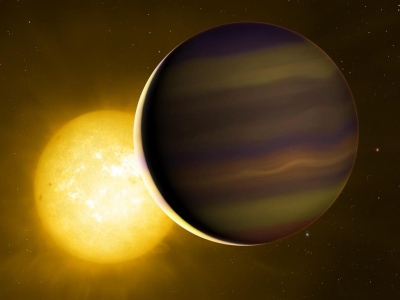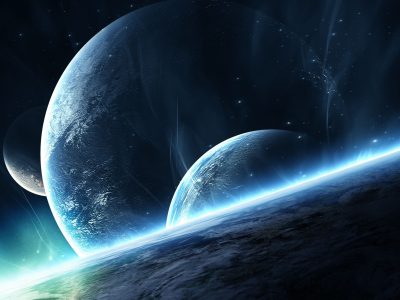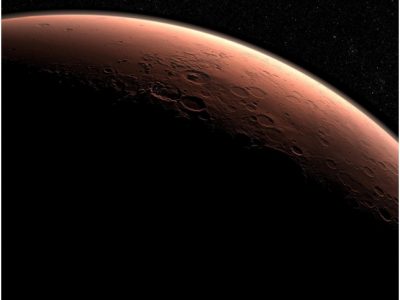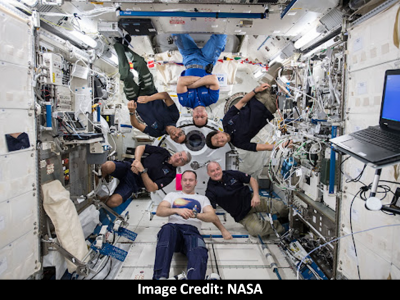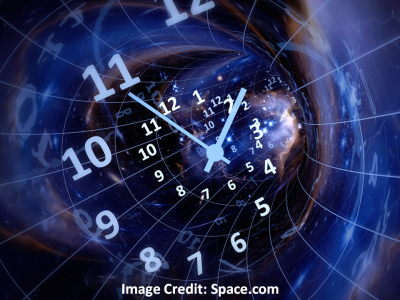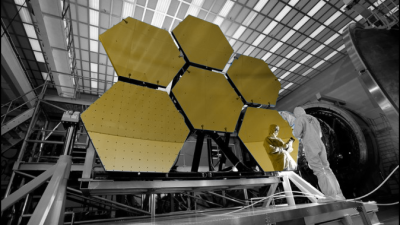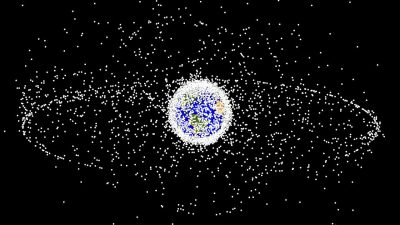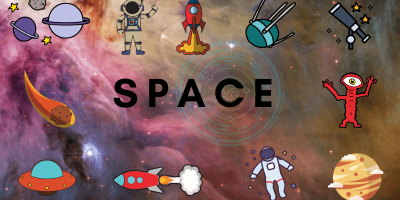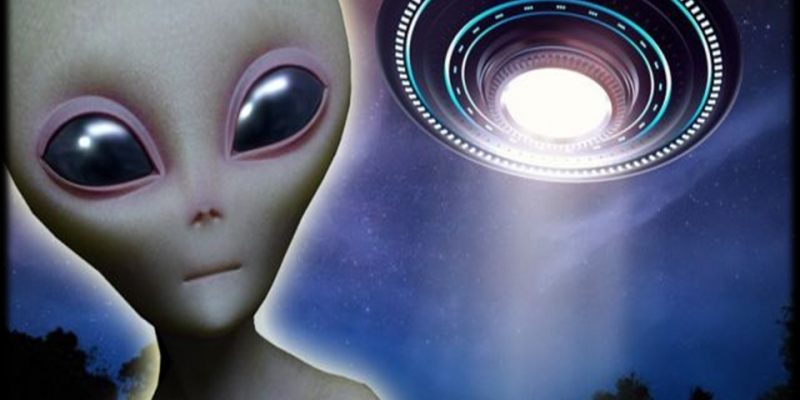
There has been much speculation about the contents of a report released by the Pentagon’s Unknown Atmospheric Phenomena Task Force. The document provides a comprehensive summary of what the US government knows about unknown atmospheric phenomena, or more commonly the term: Unidentified Flying Objects.
The New York Times recently published an introductory article on the prospects, presented by unnamed senior officials who were familiar with the contents of the report.
According to the Times’ sources, the report does not indicate any clear link or association between UFO sightings over the past two decades – more than 120 incidents – and the likelihood of aliens visiting Earth.
If the Times’ sources are correct, there is no good reason to consider any unidentified or unidentified object in the sky as evidence of the existence of extraterrestrials.
But does this deny the existence of aliens elsewhere in the universe? Can we find them, if true? Are they so different from us that it is impossible to find them?
Below are detailed responses from five experts, four of whom believe aliens exist…
Astrobiologist Jonti Horner

Astrobiologist Jonti Horner (Image Source: spaceaustralia.com)
I’m sure aliens exist. The question we have to ask is: Is it close enough to be detected? The space is incredibly large.
In the past few decades, we’ve learned that almost every star in the universe has planets. Our Milky Way galaxy hosts about 400 billion stars. If we assume that each star has five planets, we’ll have two trillion planets in our galaxy alone.
This number will jump to an imaginary number, given that there are more galaxies in the universe than there are planets in the Milky Way.
In other words, there are so many planets in our universe, with so much diversity that it’s impossible to believe that Earth is the only planet that has life, including technologically advanced intelligent life.
But will we find such life outside Earth? This is a difficult question.
Imagine that only one star out of every billion hosts a planet that has the conditions for the development of technologically advanced life capable of revealing the existence of aliens in the universe.
This would give us 400 stars hosting advanced life in our galaxy. But the diameter of our galaxy is vast, 100,000 light-years from one end to the other, and this range is so large that, on average, those stars would be about 10,000 light-years away from each other.
Which is way too far for us to hear space signals – at least for now – unless they are stronger than anything we can send!
So, while I’m sure there is a life of aliens beyond Earth, finding evidence of that will be difficult.
Astrophysicist Steven Tingay

Astrophysicist Steven Tingay (Image Source: static.businessnews.com.au)
Yes, there is alien life, but that’s a bold assertion, so we’d better be clear about what we’re talking about. I use the term “alien” to refer to all forms of life in places other than Earth.
Currently, there is no detailed consensus on the definition of life, it is a very complex concept, but if we find something like bacteria somewhere else outside Earth, I would classify it as “Alien life”.
The universe contains hundreds of billions of galaxies, each of which may consist of billions of stars, most of which host at least one planet. These planetary systems contain a rich mixture of elements, including those necessary for life.
So, it’s hard to believe that the special mix of conditions that created life on Earth only happened on Earth, and not on the trillions of other planets in the universe.
But it’s still too early to know if this life is in the form of “bacteria”, or is it a technologically advanced and exciting civilization that we can communicate with.
A major effort is being made to search for alien civilizations that might use similar technologies like ours, such as powerful radio telescopes that send out radio-wavelength signals from distant planetary systems.
Until we get an unfamiliar signal, our definition of life may turn out to be too narrow, and that aliens – wherever they are – may be restricted or governed by an entirely different set of rules and laws.
Planetary scientist Helen Maynard Casely
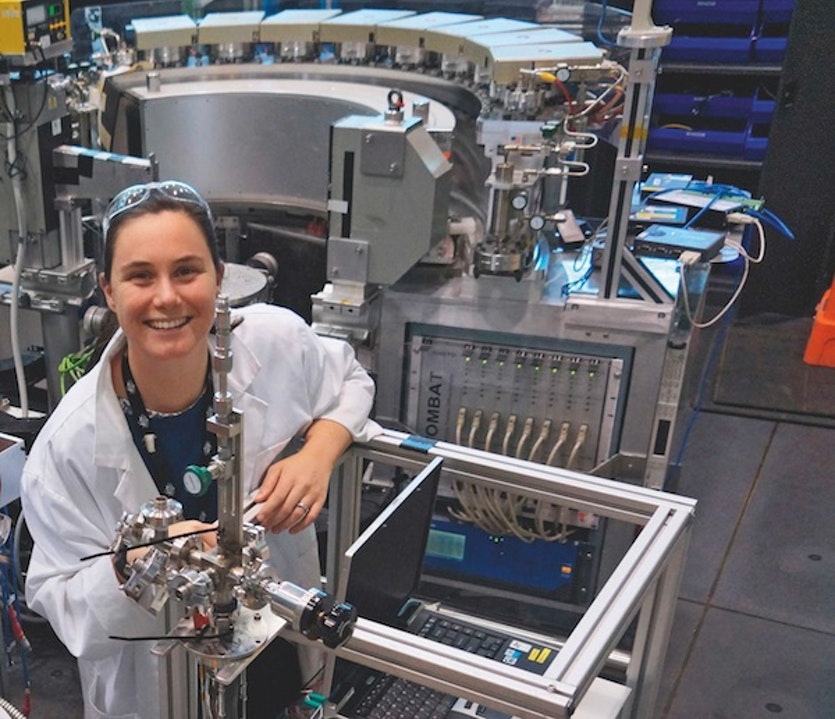
Planetary scientist Helen Maynard Casely (Image Source: cosmosmagazine.com)
I think it’s only a matter of time before we find something like biology on an exoplanet. This is because we are increasingly finding many potential locations in our solar system that might be suitable for life as we know it on Earth.
For example, the subsurface oceans under the icy surface of Jupiter’s two large moons, Europa and Ganymede, locations where the temperature is just right and there is access to water and minerals as well.
But this is of course an analysis of it from our human perspective on Earth, alien life might be very different from our own.
That’s why I’m excited about further exploration of Saturn’s moon Titan, which has active weather systems on its surface that transport and mix a whole host of important particles. All this and we have not crossed the threshold of our solar system, so how about other solar systems within our galaxy?
Given all of the above, the possibility increases that there is a suitable place for some active biology somewhere in our universe, but will they be able to understand us and talk to us? Well, that’s a different question.
Space technologist Rebecca Allen
Yes, there is life outside Earth, but it may be different from us. It is estimated that there are more than 100 billion planets in our galaxy alone – with about six billion Earth-like planets – so the possibility of life outside our planet is almost certain.
When we hear the word “alien”, we usually think of an image of a human-like life form, but even on Earth, the most widespread form of life is much older, smaller, and more resilient.
I’m talking about microorganisms, of course, these organisms defy science by being in places that are deadly to life, like the ash around volcanic craters.
I bet alien life exists in the form of these extremes.
NASA has sent a team of astronauts made up of microscopic “water bears” to the International Space Station so that scientists can study how they perform in this harsh environment.
Given the availability of the major components of life in our solar system, it is possible that the most resilient life form on Earth is scattered across the galaxy.
But what about more advanced life images? The truth is that space is very vast, and through the data of the Kepler mission, we found it difficult to find other worlds, especially Earth-like ones, not to mention that it took billions of years for advanced life to thrive on Earth, so there is little chance of finding a similar type of alien life.
But hope remains as scientists continue to use advanced radio telescopes to search the sky for new forms of radio signals.
Astrobiologist Martin Van Kranendonk
Astrobiologist Martin Van Kranendonk (Image Source: Twitter)
The simple answer to this question is no.
If we rely on purely empirical data to research the possibility of extraterrestrial life having nothing to do with human activity, the answer, as far as we know, should be.
But of course, we know – These are limited, but we haven’t checked every corner of the universe for signs of life, nor do we even know what life is in another chemical system.
Plus, there is no agreed-upon definition of carbon-based life, even here on Earth. Perhaps the most correct answer is that we don’t know yet, and we may never be able to come up with a definitive answer to this question. There is certainly a lot of work currently underway to try to provide a satisfactory answer to this.
In the future, we might be able to figure out whether we have close neighbors between the planets, or are we really alone? Or maybe we’ll never know.
Suggested Reading: WHAT IF WE ARE ALIENS IN THIS PLANET?
Author
Rafid Hasan Abdullah Yahya Dejrah


